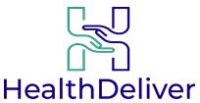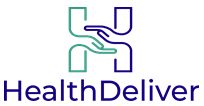Attention Deficit Hyperactivity Disorder (ADHD) is commonly associated with childhood, yet it can persist into adulthood, significantly impacting various facets of life. Despite its prevalence, ADHD in adults often remains undiagnosed, resulting in challenges in work, relationships, and daily functioning. Recognising the symptoms and seeking appropriate treatment can markedly improve the quality of life for those affected.
Recognising ADHD in Adults
ADHD symptoms in adults can be subtle and are frequently masked by coping mechanisms developed over time. Unlike the evident hyperactivity observed in children, adult symptoms typically encompass difficulties with concentration, disorganisation, forgetfulness, and impulsivity. These issues can disrupt professional obligations, making it challenging to complete tasks and meet deadlines. On a personal level, maintaining relationships and managing daily routines can also pose challenges.
Common signs of ADHD in adults include:
- Difficulty Concentrating: Struggling to stay focused on tasks or conversations.
- Disorganisation: Regularly misplacing items and experiencing difficulty in keeping track of responsibilities.
- Forgetfulness: Missing appointments and forgetting important dates or tasks.
- Impulsivity: Making quick decisions without considering the consequences.
Why ADHD in Adults Often Goes Undiagnosed
ADHD in adults is frequently disregarded as the symptoms may be less prominent than in children. Adults may have developed coping mechanisms, such as relying heavily on reminders and routines. However, these strategies do not address the underlying issues. Additionally, ADHD symptoms can be mistaken for other issues such as stress, cognitive difficulties (e.g., short-term memory loss), anxiety, or mood disorders, complicating diagnosis.
Early diagnosis and intervention are imperative. Untreated ADHD can lead to various complications, including diminished job performance, relationship difficulties, low self-esteem, financial issues, health problems, and an increased risk of substance abuse.
Comprehensive Assessments
Accurate diagnosis of ADHD necessitates thorough assessments. Evaluations encompass detailed interviews and objective data collection to gain a comprehensive understanding of the individual’s situation. This holistic approach ensures that all symptoms and their impacts on daily life are meticulously captured.
During the assessment, various aspects of the individual’s history and current functioning are explored. This may entail questionnaires, cognitive tests, and discussions about behaviour patterns and life experiences. The aim is to create a detailed profile that aids in making an accurate diagnosis and developing a personalised treatment plan.
Treatment and Management
Effective management of ADHD in adults often entails a combination of medication, behavioural therapy, and lifestyle adjustments. Medications such as stimulants and non-stimulants can aid in regulating attention and behaviour. Behavioural therapies focus on cultivating skills to manage time, enhance organisation, and diminish impulsive actions.
Lifestyle changes are also vital. Regular exercise, a balanced diet, and sufficient sleep can significantly impact symptom management. Additionally, mindfulness practices and stress reduction techniques can assist in improving focus and emotional regulation.
Support and Resources
Living with ADHD can be challenging, but support and resources are available. Early intervention can lead to notable enhancements in daily functioning and overall well-being.
At HealthDeliver, we offer ongoing support to help individuals navigate their ADHD journey. Our team of professionals is committed to providing tailored guidance and treatment options that align with each person’s unique needs. Contact us at HealthDeliver.Asia for further information or to arrange an assessment.
By comprehending ADHD and taking proactive measures towards management, adults can lead fulfilling and productive lives. Together, we can strive towards managing ADHD and enhancing your overall well-being.



